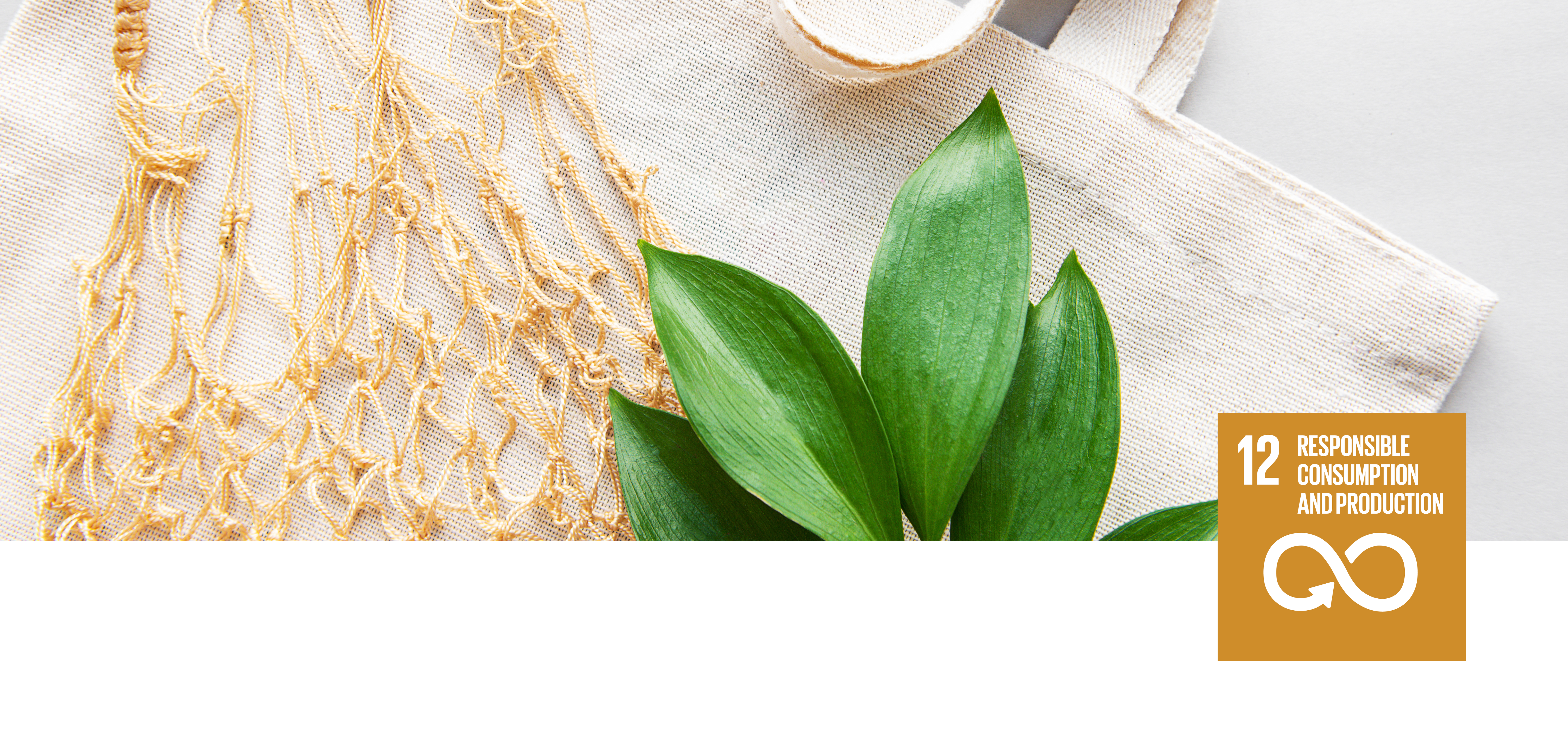
SDG 12: responsible consumption and production
HKUST values the importance of the environment and encourages our community to have an environmentally conscious approach in their consumption habits. We have developed policies for the sustainable sourcing of materials and reduction of disposable one-time use items on campus, programs for waste disposal tracking, recycling, and plastic reduction have also been implemented. Through our curriculum, research projects and community campaigns we aim to raise awareness and practical improvements that our stakeholders can take, encouraging community involvement in sustainable consumption.
Curriculum
79 related courses were offered in the 2022-23 academic year.
Research
According to Science Direct, from 2019 to 2023, HKUST published 249 research papers addressing SDG 12.
About 41% of them are in the top 10% cite score and around 70% are internationally co-authored.
Research Highlights
Hydrochar Project
A Sustainable Smart Camps as a Living Project called "Upcycling Yard and Food Wastes into New Resources: Hydrochar for Supporting HKUST Greening" utilized the organic wastes and convert them into material that could improve the ecosystem functions and potentially the quality of life.
Life Cycle Lab
To support researchers, industry practitioners, and students, we launched the Life Cycle Lab platform to deliver Life Cycle Assessment (LCA) training materials, tools, and workshops to strengthen the understanding of the environmental, economic, and social impact of consumption. The Life Cycle Lab aims to demonstrate the importance of LCA in the development of more sustainable products and circular system design, product labelling, behavioural research and consumer education as well as policy making.
Policy
Guidelines for Green Office Operations
The operation of department and staff offices must abide to HKUST Sustainability Guideline which outlines the required involvement of each department in the Sustainability Network to ensure smooth adoption. All equipment and appliances such as photocopiers, printers, dispensers and air conditioners on campus are EMSD Level 1 performance level or at least ENERGY STAR-recognized to ensure most energy efficiency. The HKUST Purchasing Office (PURO) recently renewed the operational Guidelines on Sustainable Purchasing showing its commitment to stricter authorization of office purchase requests by “greening” the campus’ supply chain.
DGuidelines for Hazardous Waste Disposal
All departments operating under HKUST must comply with regulations relating to the appropriate disposal of hazardous waste—from its identification to the specific procedures outlined by the HKUST Health, Safety and Environment Office (HSEO). These measures are in place to ensure sustainable and responsible consumption and waste management.
Guidelines for Sustainable Procurement
Net-Zero Carbon Consideration for Capital Projects prioritize the use of locally-sourced, recycled and overall low-carbon options through the targeting of green building certification such as BEAM + and LEED. Additionally, HKUST preferentially selects suppliers with ISO14001 environmental management certification or equivalent as well as requirements for them to disclose Environmental, Social and Governance (ESG) data including carbon footprint, resources consumption, fair labor practice etc.
All purchase requests made by suppliers and contractors must comply with the HKUST Sustainable Purchasing Requirements for Suppliers and Contractors, including adherence to the Green Procurement Checklist, to ensure the lowest environmental impact and the highest usable product lifespan in the long run.
Community Engagement
Green Campus Challenge: SDG #12 GAMIthon
With the support of the Jockey Club Sustainable Campus Consumer Programme, the SDG#12 GAMIthon equipped students to brainstorm sustainable consumption solutions by creatively applying gamification. This two-day hackathon brought together participants from all eight major universities in Hong Kong to form teams to develop a solution and win HKD25,000 funding for game development and mentorship.
Ms. Amrita Saraswati Sutedja, Student Researcher at HKUST gives a workshop on the topic of Sustainable Fashion as part of the SDG #12 GAMIthon
Waste
Reducing Waste
We monitor and manage our waste generation, disposal, and recycling practices and share data with our community. In the academic year 2022-2023, HKUST generated a total of 2,905 tons of waste in total. However, only 1,828 tons or 0.12 tons per capita ended up on landfills. Due to our effective strategies of repurposing food waste, we successfully achieved a 37% diversion rate or equivalent to 1,077 tons of waste being recycled. This information allows us to identify areas of excessive waste production and implement measures to reduce waste at the source.
While we constantly strive to increase recycling rates, we recognize the vital role of reducing our consumption and reusing what we already have. To support this, we held repair party that teach participants how to fix their electronic devices, thereby reducing waste and extending the life of their existing goods.
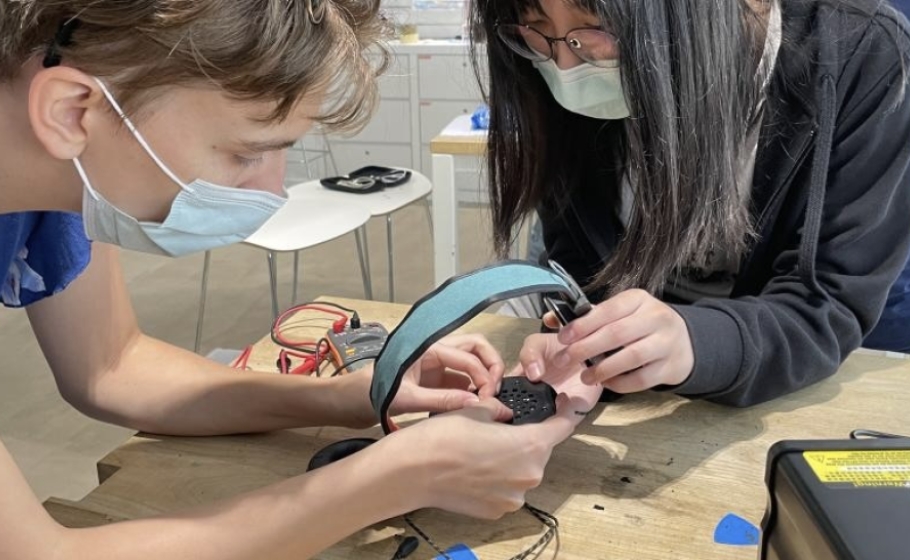
October 2022: Electronic Device “Repair Party”
Also, the Jockey Club Sustainable Consumer Program (JCSCCP) is a cross-university initiative to promote Responsible Consumption and Production. As part of the Hong Kong Sustainable Campus Consortium (HKSCC), HKUST is participating in this 3-year program to implement campus improvement and education initiatives. 2022 saw over 40 future sustainable leaders undergoing training in Sustainable opportunities in various departments such as fashion, food as well as recycling.
The university aims to reduce landfill waste by 50% through campaigns like HKUST Bottled Water-free Campus Campaign and kicking open doors for carbon reduction efforts through the Automatic Reusable Meal Container Lending and Returning System, FIRST of its kind, eliminating 300 disposable lunchboxes from landfills pushing down carbon emissions.
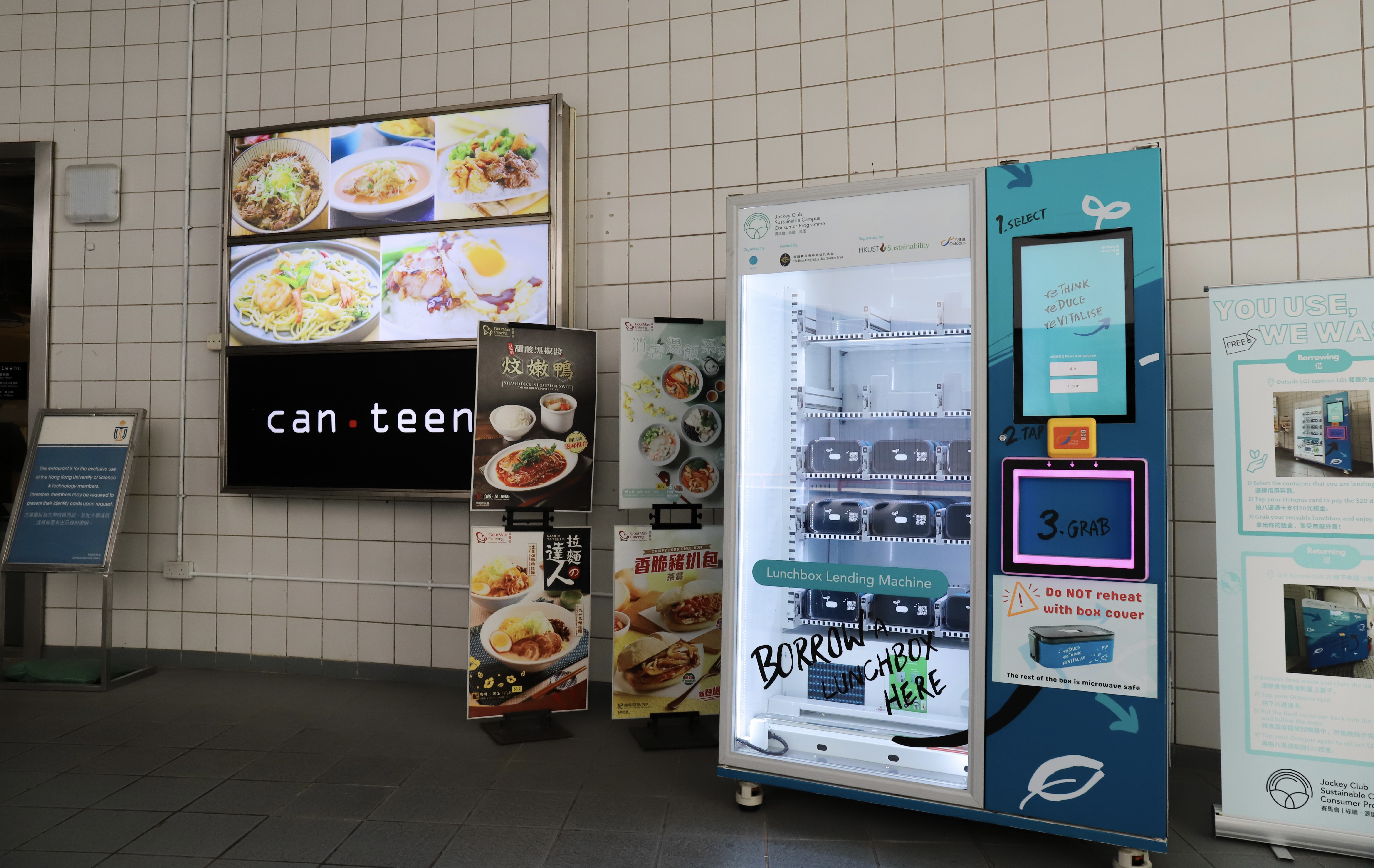
JCSCCP Reusable Meal Container Lending and Returning System
Minimising Plastic Use
The ban of one-time bottled water on campus since 2018 removed the sale of single-use plastic bottled water of 1 Liter or less. This policy is approximated to have eliminated the use of 22,000 disposable plastic water bottles monthly, or about 1,500,000 bottles since it was applied up to June 2023. Initiatives include distributing reusable UST branded water bottles to new students, installing water fountains with bottle-filling capabilities, and raising awareness about the environmental impact of plastic bottles. Offices and departments are encouraged to eliminate disposable bottles at meetings and events, opting for reusable alternatives. The campaign has garnered support from various units, and students are encouraged to bring their own bottles and refill them at water fountains. By promoting sustainable options, HKUST seeks to reduce plastic waste and promote a culture of environmental responsibility.
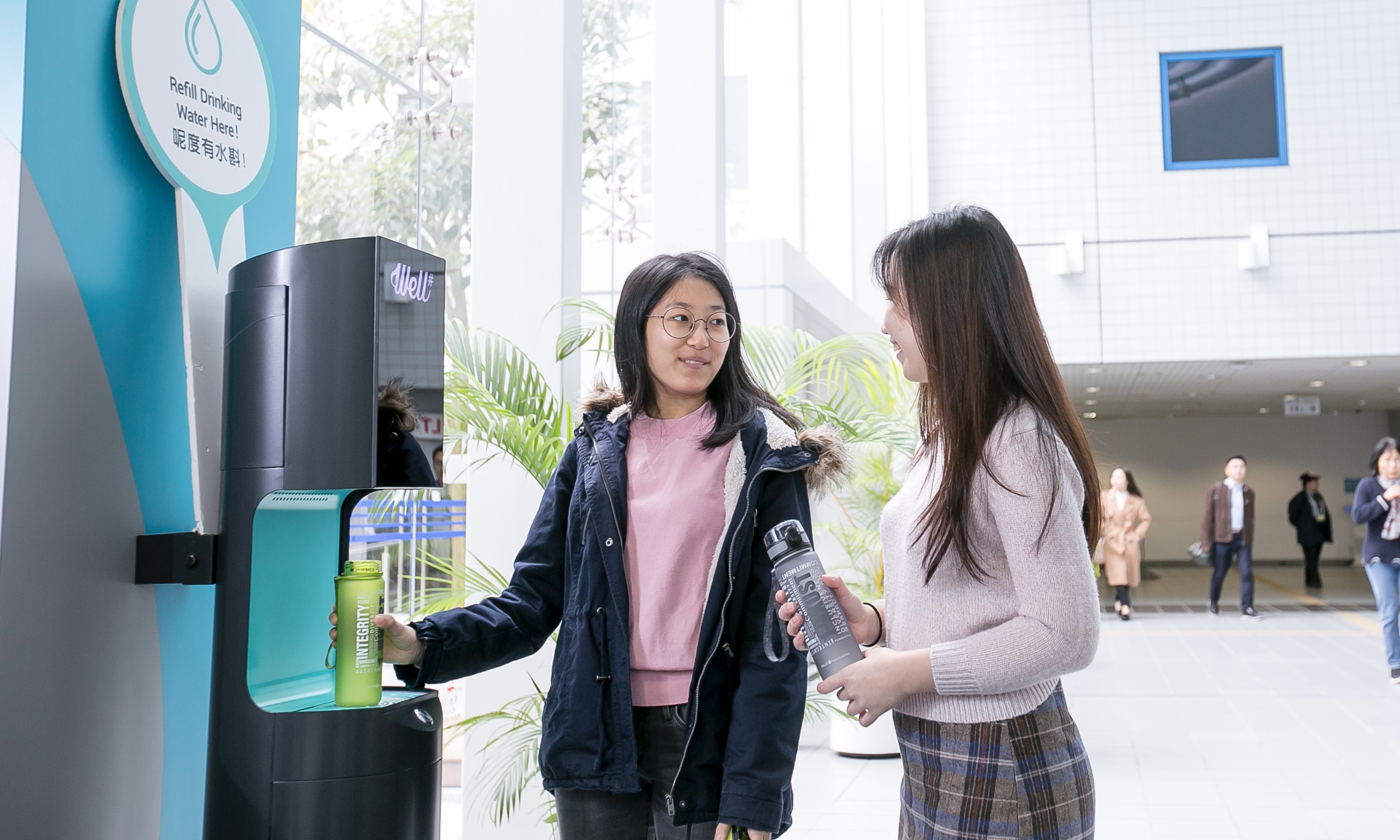
HKUST One-time Bottled Water Ban on Campus
Also, we aim to create an environment where our community also works closely with PARKnSHOP to to reduce plastic packaging at Fusion for fruits and vegetables since 2019.
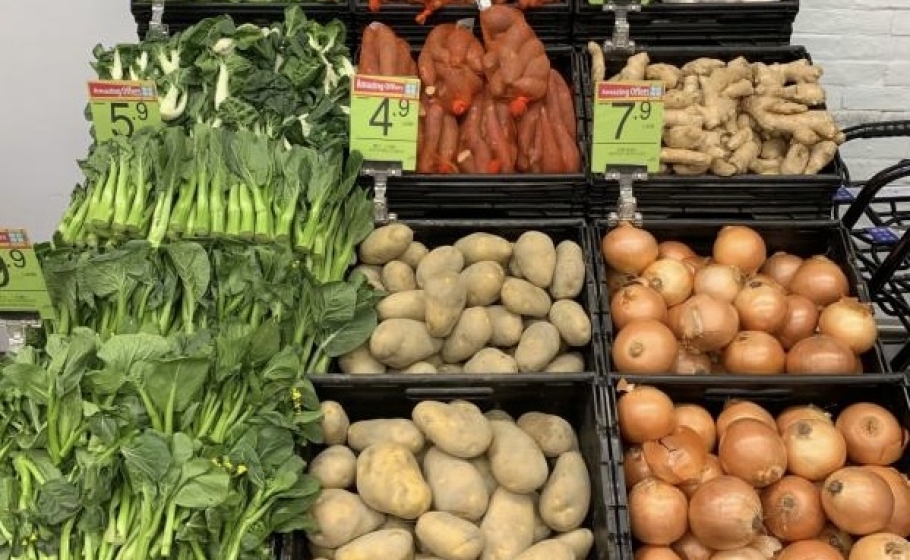
Plastic package-free vegetables in Fusion Supermarket